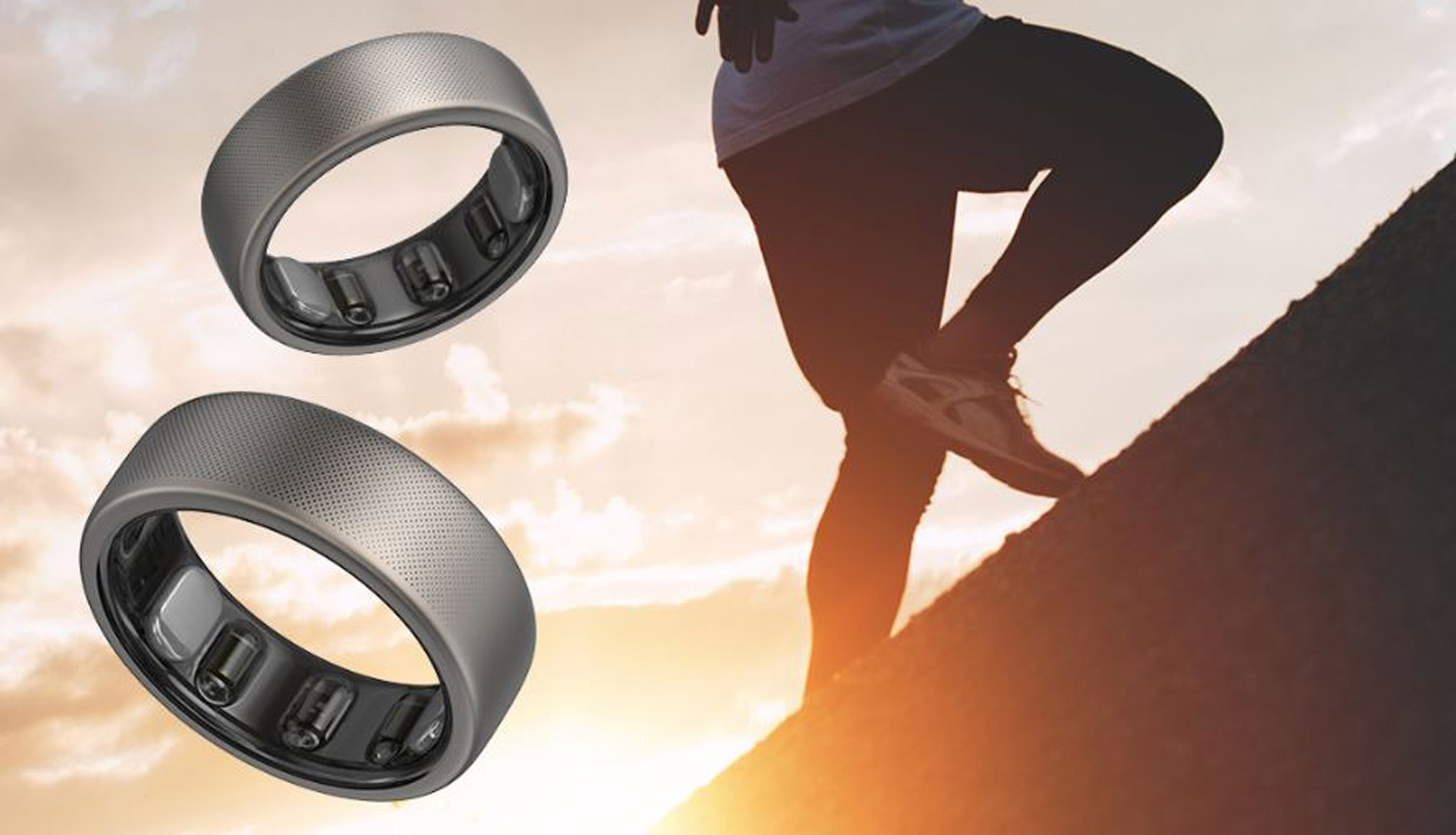Amazfit Helio Ring is announced at CES – beating the rumored Samsung Galaxy Ring to the punch
A new challenger enters the (smart) ring

Amazfit has announced the Amazfit Helio Ring, a new smart wearable designed for “optimum athletic performance”, at CES 2024.
Amazfit is the latest brand to compete with the best smart rings, such as last year’s Ultrahuman Ring Air and the Oura Generation 3, and although we don’t know everything about the Helio Ring right now – we’re missing a release date and even a price – we do know a few details about the device itself.
Made of ‘skin-friendly’ titanium alloy and weighing less than 4g, the ring is said to offer detailed sleep tracking (its main competitor, the Oura Ring, is considered our best sleep tracker after all) and athletic recovery stats. It’s got 10ATM water resistance, so it's happy to be dunked up to 100 meters deep, and will deliver weekly and monthly sleep reports along with sleep health assessments.
Just like the best Garmin watches, the Helio will also boast a Readiness score incorporating your physical exertion and the quality of your sleep, and if you’re a runner it’ll provide race prediction times from 5K to marathon – again, just like a tiny Garmin watch. However, it seems to come with only four workout modes announced so far: running, walking, cycling, and treadmill; hopefully others will be announced in due course.
Like seemingly every other wellness device debuting at CES this year, it’s got an AI element too: the companion app is named Zepp Aura AI, and is described as a ‘rest and wellness service’ featuring an AI chatbot you can ask about your health.
In order to access this AI chatbot, however, you’ll need to subscribe to the premium version of the app, which also nets you weekly and monthly fitness reports and costs $69.99 (approx £75 / AU$105) per year.
See our thoughts on smart rings in the video below:
@techradar ♬ Mia - Yailin La Mas Viral
Analysis: the smart ring revolution is coming
I love the idea of smart rings. A piece of hardware which monitors our health with all the sophistication of a smartwatch, and that can be worn on the finger? More comfortable during sleep, unobtrusive during the day, far less obvious than a big flashy screen on the wrist, with NFC payments and advanced fitness tracking? Sign me up. With plenty of competition due to follow the Helio Ring, 2024 is looking like the year of the smart ring.
Get daily insight, inspiration and deals in your inbox
Sign up for breaking news, reviews, opinion, top tech deals, and more.
However, the price of this technology seems to be monthly and annual payments. Oura has also gone down the monthly subscription route, so perhaps we can expect this to be standard for smart rings going forward – although I’d certainly welcome a one-and-done purchase, like the Ultrahuman Ring Air. I understand that developing wellness apps that are updated on an ongoing basis takes capital, and many premium services are good value for money; but at my core, I dislike having my own data sold back to me.
Perhaps the heavily-rumored Samsung Galaxy Ring will join Ultrahuman in breaking ranks with the subscription model; Samsung doesn’t require you to take out a premium subscription to enjoy the Samsung Galaxy Watch 6 to its fullest extent, so hopefully that will extend to the all-but-confirmed Galaxy Ring. I'll be interested to know how much Amazfit plans on selling its Helio Ring for, as it could mean the difference between a great-value device and one that fails to launch.
We’re covering all of the latest CES news from the show as it happens. Stick with us for the big stories on everything from 8K TVs and foldable displays to new phones, laptops, smart home gadgets, and the latest in AI.
And don’t forget to follow us on TikTok for the latest from the CES show floor!
You might also like...
- Mojawa's new bone-conduction headphones have a built-in AI sports coach
- Gaming monitors are going to get even smoother thanks to the newly revealed G-Sync Pulsar
- LG OLED TVs are getting a Dolby Vision Filmmaker Mode – here’s why it’s a big deal
Note: This article was amended on 10/01/2024, to note that the Ultrahuman Ring Air does not require a subscription.

Matt is TechRadar's expert on all things fitness, wellness and wearable tech.
A former staffer at Men's Health, he holds a Master's Degree in journalism from Cardiff and has written for brands like Runner's World, Women's Health, Men's Fitness, LiveScience and Fit&Well on everything fitness tech, exercise, nutrition and mental wellbeing.
Matt's a keen runner, ex-kickboxer, not averse to the odd yoga flow, and insists everyone should stretch every morning. When he’s not training or writing about health and fitness, he can be found reading doorstop-thick fantasy books with lots of fictional maps in them.